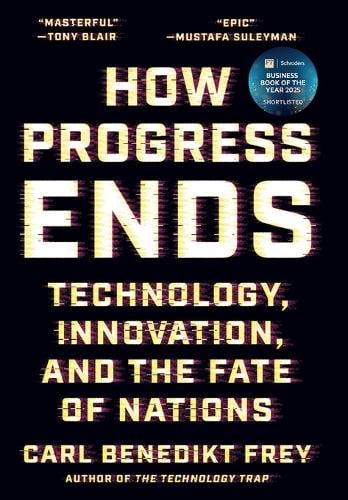The book offers a comprehensive historical analysis of technological progress, emphasizing the delicate balance between innovation and societal stability. It challenges the inevitability of progress and highlights the potential pitfalls of unchecked technological advancement.
This review delves into the book's exploration of technological progress over a thousand years, from the Qin Dynasty to modern times. They appreciate the depth of historical context provided, which underscores the importance of balancing innovation with societal needs. The reviewer notes that the book serves as a critical warning about the potential consequences of unregulated technological growth, making it a relevant read for policymakers and technologists alike. However, they also point out that the book's broad scope might leave some readers wanting more detailed analysis on specific technological advancements.
Quick quotes
How Progress Ends offers a sweeping historical analysis that is as relevant today as it was a millennium ago.
The book challenges the conventional belief that economic and technological progress is inevitable.
Frey's work serves as an essential warning about the potential pitfalls of unchecked technological advancement.
